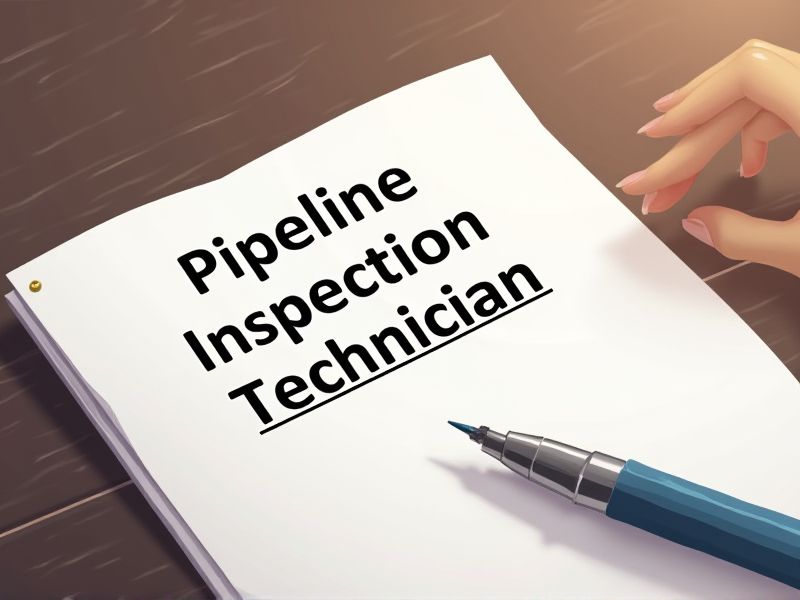
Pipeline inspection technicians play a crucial role in ensuring the safety and functionality of pipeline systems, a sector closely regulated due to its potential risks. Industry standards demand thorough inspections; hence, technicians must possess specific competencies validated through certifications. These certifications confirm a technician's ability to identify faults, ensure compliance with safety protocols, and perform assessments with precision. Here are some important certifications needed for a Pipeline Inspection Technician.
API 1169 Pipeline Construction Inspector Certification
API 1169 Pipeline Construction Inspector Certification establishes a standardized competency level, ensuring that inspectors possess the necessary skills and knowledge for effective pipeline inspection. This certification reduces the likelihood of errors and accidents, promoting safety in pipeline construction. Regulatory bodies and industry stakeholders recognize API 1169 as a benchmark, fostering trust and compliance throughout the pipeline sector. A certified inspector can access better job opportunities, as employers prefer individuals with validated expertise.
API 570 Piping Inspector Certification
The API 570 Piping Inspector Certification is needed because it establishes a standardized level of competency required to assess piping systems, ensuring alignment with industry regulations and safety protocols. Possessing this certification indicates to employers and clients that a technician is knowledgeable about inspection techniques and able to identify potential defects or non-compliances. It enables technicians to effectively reduce risks of system failures by performing thorough evaluations and reporting, which is crucial for maintaining operational integrity and safety. Certification requirements ensure technicians stay updated on the latest industry developments, techniques, and technologies in pipeline inspections.
Non-Destructive Testing (NDT) Level II Certification
Non-Destructive Testing (NDT) Level II Certification provides technicians with the authority to perform and document inspections, ensuring pipelines meet industry safety and quality standards. This certification signifies advanced knowledge and skills necessary to detect defects that could lead to pipeline failures. Employers and regulatory bodies recognize NDT Level II certified technicians as competent to assess and mitigate potential hazards. Compliance with legal and industry regulations often mandates such certification, reducing liability and operational risks.
NACE Corrosion Technician Certification
NACE Corrosion Technician Certification equips Pipeline Inspection Technicians with specialized knowledge in corrosion protection, essential for maintaining pipeline integrity. Acquiring this certification results in improved safety standards as technicians gain a deeper understanding of corrosion-related risks. Industry standards often require certified professionals to ensure compliance with regulations and best practices. The certification enhances a technician's career prospects by validating their expertise in corrosion management essential for the pipeline industry.
OSHA 30-Hour Construction Safety Training Certification
Pipeline Inspection Technicians face risks including exposure to hazardous materials and working in confined spaces. The OSHA 30-Hour Construction Safety Training Certification equips these technicians with knowledge on safety protocols to manage such hazards effectively. Due to the high-risk environment, understanding safety regulations and emergency response can significantly reduce workplace accidents. Employers often require this certification to ensure compliance with industry safety standards and protect both employees and assets.
HAZWOPER Certification
HAZWOPER Certification is needed for Pipeline Inspection Technicians because it ensures they understand hazardous waste operations and emergency response protocols. This certification equips them to identify and manage risks associated with hazardous substances during inspections. Safety compliance is enhanced as technicians are trained to adhere to OSHA standards, reducing accident rates. Certification also minimizes liability for employers by proving competency and readiness to handle hazardous situations effectively.
Confined Space Entry Certification
Confined Space Entry Certification ensures the technician has the necessary knowledge to safely navigate and operate in restricted areas, reducing the risk of accidents. It provides critical training on hazard identification, such as toxic atmospheres or engulfment risks, protecting both the worker and the integrity of the pipeline. Regulatory compliance demands proficiency in confined space protocols to adhere to safety standards and laws. Proper certification fosters a culture of safety, improving workplace conditions and minimizing costly incidents and downtime.
API 653 Above Ground Storage Tank Inspector Certification
API 653 certification is crucial for a Pipeline Inspection Technician because it ensures the technician's understanding of above-ground storage tank inspection and maintenance. This certification aligns with industry standards, promoting safety and compliance in handling storage tanks. It provides the technician with skills to identify corrosion, assess damage, and suggest repairs, which are pivotal in preventing leaks or failures. Having API 653 certification increases a technician's credibility and employability by demonstrating expertise in tank inspection.
API 510 Pressure Vessel Inspector Certification
API 510 Pressure Vessel Inspector Certification equips technicians with the competency to assess pressure vessels for safety and compliance, reducing the risk of pipeline failures. Certified inspectors possess a deep understanding of industry standards, enhancing their ability to detect potential issues before they escalate. Proper certification ensures that technicians can make informed decisions during inspections, thereby extending the lifecycle of pipeline infrastructure. Companies gain confidence in their pipeline safety protocols when they rely on certified technicians, which can prevent costly accidents and improve operational efficiency.
Industrial Radiography (IR) Certification
Industrial Radiography Certification ensures that a Pipeline Inspection Technician possesses the necessary skills to operate radiographic equipment safely, reducing the risk of radiation exposure to themselves and others. Proper certification guarantees that technicians can accurately interpret radiographic images, crucial for identifying flaws or defects in pipeline materials. Certified technicians are more likely to adhere to industry standards and regulations, thereby enhancing the overall safety and reliability of pipeline infrastructure. Certification can improve job prospects and career advancement opportunities, as it is often a requirement for employment in various industrial sectors.
Summary
You will likely gain a competitive edge in the job market as a Pipeline Inspection Technician with certifications. These credentials often lead to increased job opportunities with higher salary prospects. Employers tend to have more confidence in certified technicians, reducing oversight costs and improving efficiency. Certification also enhances your skill set, making you adept in the latest technologies and safety protocols.
